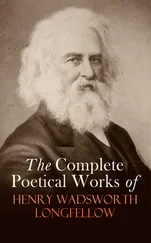James Beattie - The Poetical Works of James Beattie
Здесь есть возможность читать онлайн «James Beattie - The Poetical Works of James Beattie» — ознакомительный отрывок электронной книги совершенно бесплатно, а после прочтения отрывка купить полную версию. В некоторых случаях можно слушать аудио, скачать через торрент в формате fb2 и присутствует краткое содержание. ISBN: , Жанр: foreign_antique, foreign_prose, foreign_poetry, на английском языке. Описание произведения, (предисловие) а так же отзывы посетителей доступны на портале библиотеки ЛибКат.
- Название:The Poetical Works of James Beattie
- Автор:
- Жанр:
- Год:неизвестен
- ISBN:http://www.gutenberg.org/ebooks/41760
- Рейтинг книги:5 / 5. Голосов: 1
-
Избранное:Добавить в избранное
- Отзывы:
-
Ваша оценка:
- 100
- 1
- 2
- 3
- 4
- 5
The Poetical Works of James Beattie: краткое содержание, описание и аннотация
Предлагаем к чтению аннотацию, описание, краткое содержание или предисловие (зависит от того, что написал сам автор книги «The Poetical Works of James Beattie»). Если вы не нашли необходимую информацию о книге — напишите в комментариях, мы постараемся отыскать её.
The Poetical Works of James Beattie — читать онлайн ознакомительный отрывок
Ниже представлен текст книги, разбитый по страницам. Система сохранения места последней прочитанной страницы, позволяет с удобством читать онлайн бесплатно книгу «The Poetical Works of James Beattie», без необходимости каждый раз заново искать на чём Вы остановились. Поставьте закладку, и сможете в любой момент перейти на страницу, на которой закончили чтение.
Интервал:
Закладка:
During this year, a poem in broad Scotch, entitled The Fortunate Shepherdess , by Alexander Ross, schoolmaster, of Lochlee, was printed by subscription at Aberdeen; and in order to excite some curiosity about the volume, Beattie good-naturedly wrote a copy of verses in the same dialect, addressed to the author, which appeared in the Aberdeen Journal. 11 11 Beattie's Verses were printed in the Aberdeen Journal, together with an introductory letter in prose also by him, signed "Oliver Oldstile." The writer of the Life of Ross, in that pleasing compilation, Lives of Scottish Poets , 3 vols. 1822, says: "The author of both productions was generally understood to be Dr. Beattie; and they have remained so long ascribed to him without contradiction, that there can be little doubt of their being from his pen." Part iii. p. 107. There is no doubt about the matter; Beattie owns them in a letter to Blacklock. – Forbes's Life of Beattie , vol. i. p. 153. ed. 1807. The Fortunate Shepherdess is a poem of great merit: to the second edition of it (and I believe to all subsequent editions) Beattie's verses are prefixed.
He thus communicates to Dr. Blacklock his motives for attempting the laborious prose work, with which he was still occupied: —
"Aberdeen, 9th January, 1769."It was very kind in you to read over my 'Essay on the Immutability of Moral Sentiment' with so much attention. I wish it deserved any part of the high encomium you bestowed on it. I flatter myself it will receive considerable improvements from a second transcribing, which I intend to begin as soon as I can. Some parts of it will be enlarged, and others (perhaps) shortened: the examples from history, and authorities from ancient authors, will be more numerous; it will be regularly distributed into chapters and sections, and the language will be corrected throughout. The first part, which treats of the permanency of truth in general, is now in great forwardness; ninety pages in quarto are finished, and materials provided for as many more. The design of the whole you will guess from the part you have seen. It is to overthrow scepticism, and establish conviction in its place; a conviction not in the least favourable to bigotry or prejudice, far less to a persecuting spirit; but such a conviction as produces firmness of mind, and stability of principle, in a consistence with moderation, candour, and liberal inquiry. If I understand my own design, it is certainly this; whether I shall accomplish this design or not, the event only will determine. Meantime I go on with cheerfulness in this intricate and fatiguing study, because I would fain hope that it may do some good; harm I think it cannot possibly do any.
"Perhaps you are anxious to know what first induced me to write on the subject; I will tell you as briefly as I can. In my younger days I read chiefly for the sake of amusement, and I found myself best amused with the classics, and what we call the belles lettres . Metaphysics I disliked; mathematics pleased me better; but I found my mind neither improved nor gratified by that study. When Providence allotted me my present station, it became incumbent on me to read what had been written on the subject of morals and human nature; the works of Locke, Berkeley, and Hume, were celebrated as masterpieces in this way; to them, therefore, I had recourse. But, as I begin to study them with great prejudices in their favour, you will readily conceive how strangely I was surprised to find them, as I thought, replete with absurdities. I pondered these absurdities: I weighed the arguments, with which I was sometimes not a little confounded; and the result was, that I began at last to suspect my own understanding, and to think that I had not capacity for such a study. For I could not conceive it possible, that the absurdities of these authors were so great as they seemed to me to be; otherwise, thought I, the world would never admire them so much. About this time some excellent antisceptical works made their appearance, particularly Reid's 'Inquiry into the Human Mind.' Then it was that I began to have a little more confidence in my own judgment, when I found it confirmed by those of whose abilities I did not entertain the least distrust. I reviewed my authors again, with a very different temper of mind. A very little truth will sometimes enlighten a vast extent of science. I found that the sceptical philosophy was not what the world imagined it to be, nor what I, following the opinion of the world, had hitherto imagined it to be, but a frivolous, though dangerous, system of verbal subtilty, which it required neither genius, nor learning, nor taste, nor knowledge of mankind,[Pg xxviii] to be able to put together; but only a captious temper, an irreligious spirit, a moderate command of words, and an extraordinary degree of vanity and presumption. You will easily perceive that I am speaking of this philosophy only in its most extravagant state, that is, as it appears in the works of Mr. Hume. The more I study it, the more am I confirmed in this opinion. But while I applauded and admired the sagacity of those who led me into, or at least encouraged me to proceed in, this train of thinking, I was not altogether satisfied with them in another respect. I could not approve that extraordinary adulation which some of them paid to their arch-adversary. I could not conceive the propriety of paying compliments to a man's heart , at the very time one is proving that his aim is to subvert the principles of truth, virtue, and religion; nor to his understanding , when we are charging him with publishing the grossest and most contemptible nonsense. I thought I then foresaw, what I have since found to happen, that this controversy will be looked upon rather as a trial of skill between two logicians, than as a disquisition in which the best interests of mankind were concerned; and that the world, especially the fashionable part of it, would still be disposed to pay the greatest deference to the opinions of him who, even by the acknowledgment of his antagonists, was confessed to be the best philosopher and the soundest reasoner. All this has happened, and more. Some, to my certain knowledge, have said, that Mr. Hume and his adversaries did really act in concert, in order mutually to promote the sale of one another's works; as a proof of which, they mention, not only the extravagant compliments that pass between them, but also the circumstance of Dr. R. 12 12 Dr. Reid.
and Dr. C. 13 13 Dr. Campbell.
sending their manuscripts to be perused and corrected by Mr. Hume before they gave them to the press. I, who know both the men, am very sensible of the gross falsehood of these reports. As to the affair of the manuscripts, it was, I am convinced, candour and modesty that induced them to it. But the world knows no such thing; and, therefore, may be excused for mistaking the meaning of actions that have really an equivocal appearance. I know likewise that they are sincere, not only in the detestation they express for Mr. Hume's irreligious tenets, but also in the compliments they have paid to his talents; for they both look upon him as an extraordinary genius; a point in which I cannot agree with them. But while I thus vindicate them from imputations, which the world, from its ignorance of circumstances, has laid to their charge, I cannot approve them in every thing; I wish they had carried their researches a little farther, and expressed themselves with a little more firmness and spirit. For well I know, that their works, for want of this, will never produce that effect which (if all mankind were cool metaphysical reasoners) might be expected from them. There is another thing in which my judgment differs considerably from that of the gentlemen just mentioned. They have great metaphysical abilities, and they love the metaphysical sciences. I do not. I am convinced that this metaphysical spirit is the bane of true learning, true taste, and true science; that to it we owe all this modern scepticism and atheism; that it has a bad effect upon the human faculties, and tends not a little to sour the temper, to subvert good principles, and to disqualify men for the business of life. You will now see wherein my views differ from those of the other answerers of Mr. Hume. I want to show the world, that the sceptical philosophy is contradictory to itself, and destructive of genuine philosophy, as well as of religion and virtue; that it is in its own nature so paltry a thing (however it may have been celebrated by some,) that to be despised it needs only to be known; that no degree of genius is necessary to qualify a man for making a figure in this pretended science; but rather a certain minuteness and suspiciousness of mind, and want of sensibility, the very reverse of true intellectual excellence; that metaphysics cannot possibly do any good, but may do, and actually have done, much harm; that sceptical philosophers, whatever they may pretend, are the corrupters of science, the pests of society, and the enemies of mankind. I want to show, that the same method of reasoning, which these people have adopted in their books, if transferred into common life, would show them to be destitute of common sense; that true philosophers follow a different method of reasoning: and that, without following a different method, no truth can be discovered. I want to lay before the public, in as strong a light as possible, the following dilemma: our sceptics either believe the doctrines they publish, or they do not believe them: if they believe them, they are fools – if not, they are a thousand times worse. I want also to fortify the mind against the sceptical poison, and to propose certain criteria of moral truth, by which some of the most dangerous sceptical errors may be detected and guarded against.
Интервал:
Закладка:
Похожие книги на «The Poetical Works of James Beattie»
Представляем Вашему вниманию похожие книги на «The Poetical Works of James Beattie» списком для выбора. Мы отобрали схожую по названию и смыслу литературу в надежде предоставить читателям больше вариантов отыскать новые, интересные, ещё непрочитанные произведения.
Обсуждение, отзывы о книге «The Poetical Works of James Beattie» и просто собственные мнения читателей. Оставьте ваши комментарии, напишите, что Вы думаете о произведении, его смысле или главных героях. Укажите что конкретно понравилось, а что нет, и почему Вы так считаете.












